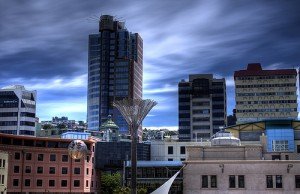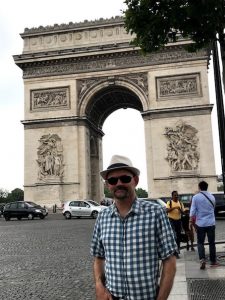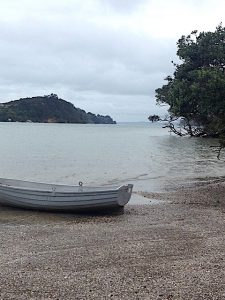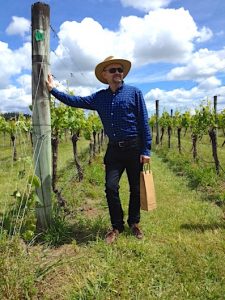 Let me begin by stating that I like Wellington Mayor Justin Lester as a person. He’s way more approachable than the previous two incumbents and I respect that he is doing his best to navigate the council through a very difficult patch in the city’s long history. He’s been a business owner in the Capital and will be acutely aware of the many challenges confronting the inner city right now. So when he announced his policy platform for re-election, I must admit to being a little disappointed.
Let me begin by stating that I like Wellington Mayor Justin Lester as a person. He’s way more approachable than the previous two incumbents and I respect that he is doing his best to navigate the council through a very difficult patch in the city’s long history. He’s been a business owner in the Capital and will be acutely aware of the many challenges confronting the inner city right now. So when he announced his policy platform for re-election, I must admit to being a little disappointed.
Eliminating homelessness and assisting refugees are very worthy goals and not to be discounted of course. Good luck with all that. But Wellington has even more pressing problems. Because it is now finally beginning to dawn on city dwellers that there are very widespread structural problems which have gone unaddressed for many years. Removing vagrants from the street may become a moot point, if the central city declines into an unliveable wasteland.
Wellingtonians are political animals by nature and in recent years have been very effective at rallying support to challenge poorly planned developments around the city where there was often insufficient public consultation. Shelly Bay and the Queens Wharf hotel are classic examples, as was the Basin Flyover that was knocked for a six and the dog’s breakfast that now passes for the Island Bay cycle lane. The highly questionable airport runway extension proposal has also been defeated (for now). These lengthy battles have been a huge distraction for councillors and previous Mayors, who should have been focused on much more pressing needs, as it turns out. Public advocacy is a good thing of course, but, for their part, opponents to infrastructure projects must also come to the table with fresh solutions to offer, not just blanket opposition. Developers and investors will soon stop calling. Some already have.
Now Civic Square is dying with the much loved library and both the Town Hall and council buildings buggered due to quake damage. This is a heavy loss. The Square was once the lively centre piece of the city. If the wooden footbridge leading to the square has to close, as has been suggested recently, it will be the final nail in the coffin as the central city is cut off from the waterfront. Dozens of at risk commercial buildings in the CBD are already untenanted, unfixable and possibly uninsurable and thousands of older homes around the CBD perimeter are in need of major refurbishment – or demolition. And let’s not even mention the failing transport networks with buses and trains that don’t work, congested arterial roads and the hellish nightmare of simply trying to find a car park in the CBD.
This is Christchurch all over again, but in slow motion. It’s time to accept that the underlying framework of the city is in real crisis now. A crisis that has crept up on the current council, but which has been in the making for decades. A complete re-visioning is needed to future proof the city, also taking into account threats related to climate change. A Christchurch style solution might be the inevitable conclusion, but more likely spread over a longer period of time. Retain and strengthen a few key edifices, bulldoze and start over with the remainder? Unfortunately I fear that it will take a much broader political will and a lot more time than one election cycle, to get things back on track.
Paul Spence is a commentator and serial entrepreneur, a co-founder of New Zealand based technology ventures iwantmyname and Creative Forest and a mentor with Startup Weekends and Lightning Lab. You can follow Paul on Twitter @GeniusNet or sign up for a free weekly digest of startup, tech and innovation related events curated by him through New Zealand Startup Digest.

 Who would have imagined that New Zealanders would ever have to endure such
Who would have imagined that New Zealanders would ever have to endure such  Twenty Eighteen could have been a disaster for me. Instead I’ve used this year to reflect deeply on my own
Twenty Eighteen could have been a disaster for me. Instead I’ve used this year to reflect deeply on my own  A series of events unfolded last week that caused me to take a step back and have a rethink about my world view and exactly what drives me to succeed in life. But to preface this story, let me explain that, for a number of reasons, this year has been one of the most challenging in my business career. It has been a year of unnecessary conflict as well as necessary but jarring changes. There have been times when (rightly or wrongly) my capability and core sense of self-worth has been questioned by others and indeed by me as well.
A series of events unfolded last week that caused me to take a step back and have a rethink about my world view and exactly what drives me to succeed in life. But to preface this story, let me explain that, for a number of reasons, this year has been one of the most challenging in my business career. It has been a year of unnecessary conflict as well as necessary but jarring changes. There have been times when (rightly or wrongly) my capability and core sense of self-worth has been questioned by others and indeed by me as well. After three weeks holiday travel, incorporating some of the leading historical and business centres of Europe, it has been quite an adjustment settling back into daily life in the sleepy province of Wairarapa where gumboots and track pants are regarded as the height of fashion in some circles and the main export is unprocessed timber. New Zealand offers many lifestyle benefits, but it is very evident that our cultural isolation threatens to obscure opportunities, unless we learn to take a wider view.
After three weeks holiday travel, incorporating some of the leading historical and business centres of Europe, it has been quite an adjustment settling back into daily life in the sleepy province of Wairarapa where gumboots and track pants are regarded as the height of fashion in some circles and the main export is unprocessed timber. New Zealand offers many lifestyle benefits, but it is very evident that our cultural isolation threatens to obscure opportunities, unless we learn to take a wider view. The environment and human development seem to be increasingly at odds. Having
The environment and human development seem to be increasingly at odds. Having  I was at a community event recently chatting to a friend and he commented, “you’ve had quite a busy year”. He was not wrong. But it was the first time it really struck me. Here’s a short recap.
I was at a community event recently chatting to a friend and he commented, “you’ve had quite a busy year”. He was not wrong. But it was the first time it really struck me. Here’s a short recap. Let’s face it, last year was a pretty shit year for fans of popular music and culture. I don’t care what the statisticians say, the catalogue of highly talented stars that made premature exits in 2016 was exceptional and shocking. However the media were (mostly) too polite to mention that the collective drug consumption of the dearly departed probably supported a number of small South American nations’ economies throughout the 1970’s and 80s. All tragic losses, but perhaps not entirely unexpected.
Let’s face it, last year was a pretty shit year for fans of popular music and culture. I don’t care what the statisticians say, the catalogue of highly talented stars that made premature exits in 2016 was exceptional and shocking. However the media were (mostly) too polite to mention that the collective drug consumption of the dearly departed probably supported a number of small South American nations’ economies throughout the 1970’s and 80s. All tragic losses, but perhaps not entirely unexpected.